Wall Street turns its back on Ivy League universities and activist students
The big investment firms are looking further afield for candidates with the ‘right’ approach after tiring of Gaza protests and the like on university campuses.
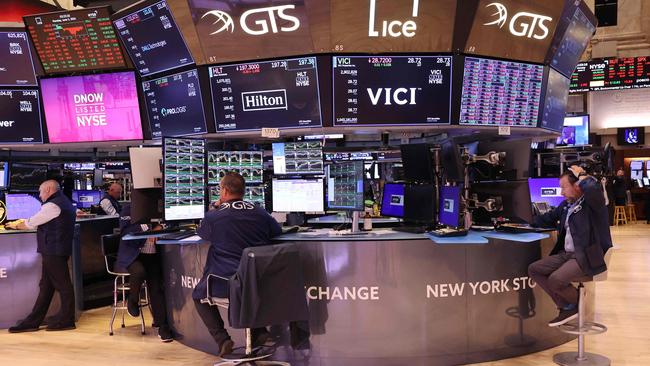
For decades, the narrow path to an entry-level job at an elite Wall Street firm typically has begun with an Ivy League degree. However, attitudes are shifting among bosses.
These bosses once had fierce allegiances to Ivy League institutions including Harvard and Yale and so-called target schools such as Stanford that put them on track to running some of the world’s most powerful companies.
Blackstone, the $US1 trillion ($1.5trn) asset manager run by Stephen Schwarzman, a Harvard alumnus, has adapted its recruitment strategy from focusing on about nine universities in 2015 to more than a thousand this year.
Goldman Sachs, the investment bank, has started interviewing entry-level candidates from hundreds more institutions after shifting to doing first-round interviews virtually.

Bank of America said it worked in partnership with 34 community colleges on a “readiness curriculum” for careers in financial services and had hired thousands of people from such institutions.
McKinsey & Company, the consultancy led by Bob Sternfels (Stanford), has more than doubled the number of American universities from which it recruits and is now a vocal supporter of the “paper ceiling” movement, which strives to take the stigma out of not having a degree.
“When we look for talent, we look at the whole person, not just degrees or institutions,” Blair Ciesil, McKinsey’s leader of talent attraction, said.
“We find that students flourish as whole people when they pick a school environment suited to them, not simply the one that’s highest-ranked.”
The shine has come off elite institutions in the past year amid allegations of anti-Semitism and co-ordinated pro-Palestine campus protests.
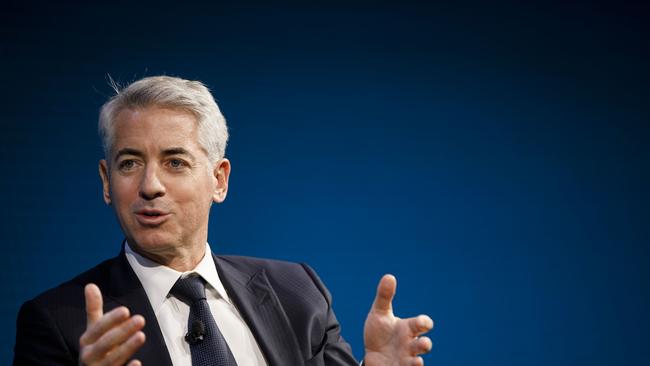
Bill Ackman, the hedge fund billionaire, is among at least a dozen bosses who have said they will not hire members of student groups at Harvard that signed a letter blaming Israel for Hamas’s deadly attack on October 7.
Johnny C Taylor Jr, of the Society for Human Resources Management, said there was a concern “that if you recruit from a school that is known for its activism, that those students don’t magically stop being activists when they show up at your workplace.
“They’ve been trained for four, six years in this activist mindset. Then when they come here and you say, ‘I want you to come back to work in the office’, they are like, ‘no, we are not going to do that,” Taylor said.
“And we are going to boycott – as you saw at Google – we are going to take over and boycott the divisional president’s office. We are going to walk off the job.’ Is this the type of employee that we want?”
In April Google dismissed 28 workers who had staged sit-ins at its offices in New York and California in protest at a contract with the Israeli government.
Taylor said human resources professionals could recruit from state institutions such as the University of Florida, where the person at the top of their class would be “really smart” as well as having the right “mindset” compared with an applicant from a top university who could “make it difficult for us to get our work done and to turn a profit”.
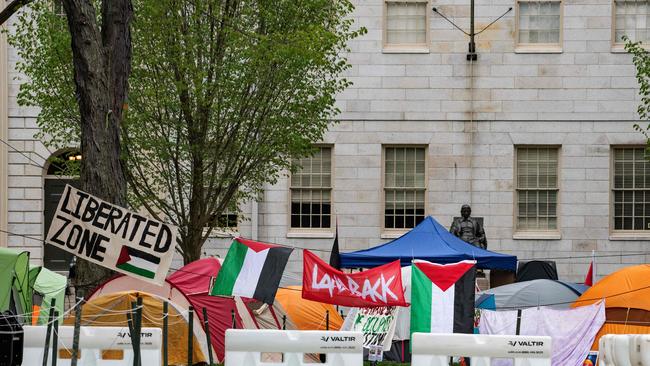
Brett Bruen, a former diplomat who now runs Global Situation Room, a crisis communications agency, said: “There is no doubt that the last several months have taken some of the shine off the Ivy League diploma.
“In part it is due to how the administrators handled some of these protests and it reinforced concerns about how out of touch and out of step some professors and administrators are with the realities in the business world and on main street,” Bruen said.
“They may be particularly effective on educating on the most elusive and esoteric theories; they are not giving a great education in some cases in the school of hard knocks and the school of how the world really works.”
Taylor said there had been a broader cultural shift in the past two decades, which he linked to low unemployment rates after the 2008 financial crash and a gradual awakening to the idea that elite universities “didn’t have a lock on smart people”.
Non-Ivy League universities and colleges had become smarter at working with big employers to ensure that students hit the ground running on day one, he said.
Luis Romero, managing partner at Romero Capital, a New York-based private equity fund, said that a “talent war” was under way between finance, technology, start-ups and entrepreneurship.
“Private equity firms are looking for intelligent, overachieving, competitive, hungry kids who take action and solve problems. These candidates are ten out of ten and Stephen Schwarzman, founder of Blackstone, only hires tens. And there is a shortage of tens.”
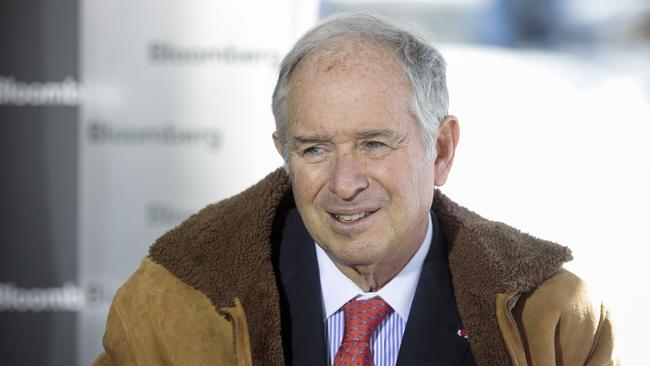
Meanwhile, meritocracy is becoming a buzzword. Alexandr Wang, the chief executive of Scale AI, an artificial intelligence company based in San Francisco that works with companies such as General Motors, published an “MEI”, or “merit, excellence and intelligence”, hiring policy this month.
He said the policy meant “we hire only the best person for the job, we seek out and demand excellence and we unapologetically prefer people who are very smart”.
In June the Supreme Court found it unconstitutional to consider race in university admissions. Taylor said companies used to be able to use race as a proxy for disadvantage, but must now find candidates who represent all types of diversity.
Young professionals are sceptical, however, that the Ivy League is losing its grip on Wall Street.
An associate at a private equity firm in her thirties who did not go to an Ivy League university said that her background was far from the norm.
“You can make it, but it’s much harder,” she said.
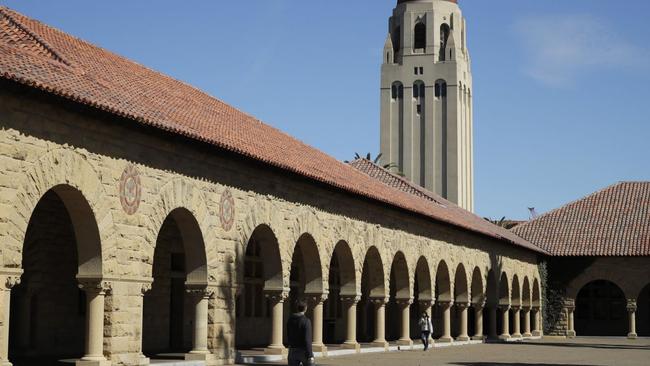
Members of the C-suite, including at her firm, organise recruiter days at institutions that they themselves attended, perpetuating the phenomenon, while some banks have dedicated representatives at Ivy League campuses to advise students on interviews and resumes.
She said she knew of finance professors with links to Wall Street firms who ran maths challenge competitions and then referred winning students for interviews and internships, opportunities that are not common at lower-ranking institutions.
Kaleb Davenport, 23, a software engineering manager from Tennessee who was rejected from Ivy League colleges and decided not to pursue a degree, does not think his decision not to go to university would prevent him from working for a company such as Google.
“I think it’s more the middle layer of the economy,” he said. “I think it’s like the Wells Fargos, the places that are good companies but not culturally significant and they just use whatever default process was put there before them.”
Wells Fargo said it hired from a “variety of talent sources” and that its 2024 internships class had come from more than 250 public and private schools throughout the United States.
Davenport has found himself excluded from alumni networking events in New York, such as the Duke University founders meet-up. Sometimes he shows up anyway, but the reception can be frosty if he is not an official alum.
The important thing, he said, was to acknowledge that your career path will be more challenging without the advantages that come with an elite education and to build your own network. “When you have a different hand, you must play it differently.”
The Times


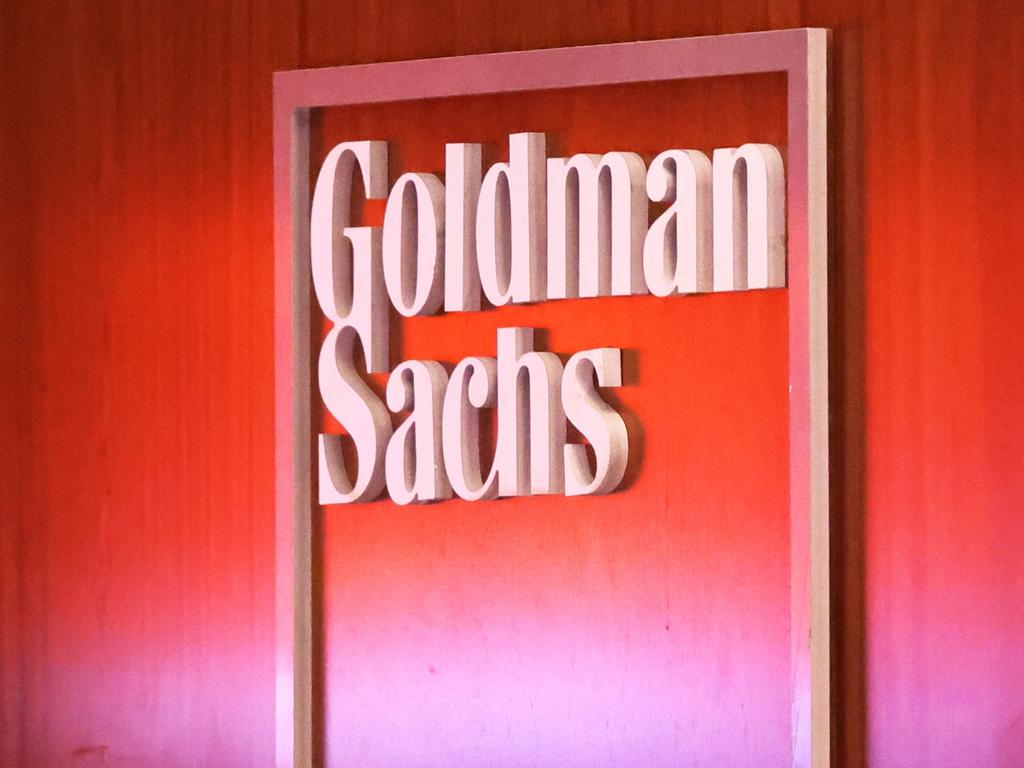




To join the conversation, please log in. Don't have an account? Register
Join the conversation, you are commenting as Logout